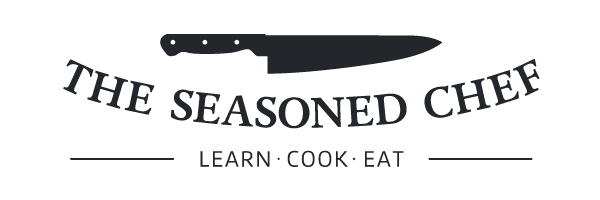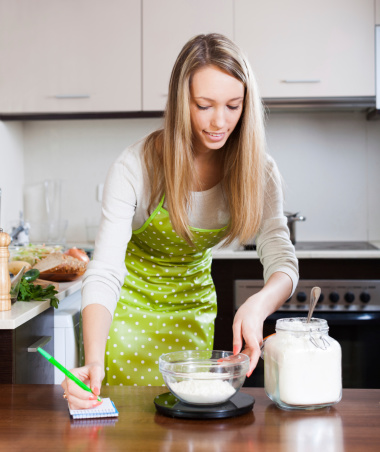WEIGHTS AND MEASURES
Basically, there are three ways to measure recipe ingredients; dry volume, liquid volume, and weight. Weight is easy. If a recipe is correctly written, and it asks for an ingredient in ounces or pounds, you weigh it or, in many cases, approximate the weight. If a recipe asks for a teaspoon, tablespoon, cup, quart, etc., it is asking for a volume measure. Dry ingredients, such as flour, rice, or sugar, need to be measured in a dry measuring cup; you fill the cup over the top, and then scrape flat to get an accurate measurement. For liquid measuring, such as milk, water, broth, etc., simply use a graduated liquid measure cup, and fill to the line.
Remember this caveat when cooking: exact measurement for bread and pasta dough, dessert cakes, crusts and fillings is important. For everyday cooking, good techniques are far more important than proper measurements!
The Basics:
3 teaspoons (tsp.) = 1 tablespoon (Tbsp.)
1 tablespoon = 1/16 cup
2 tablespoons = 1/8 cup = 1 fluid ounce (fl. oz.)
4 tablespoons = 1/4 cup
6 tablespoons = 3/8 cup
8 tablespoons = 1/2 cup
12 tablespoons = 3/4 cup
16 tablespoons = 1 cup (C.)
8 fluid ounces = 1 cup
2 cups = 1 pint (pt.)
2 pints = 4 cups = 1 quart (qt.)
4 quarts = 1 gallon (gal.)
16 ounces = 1 pound (lb.)

